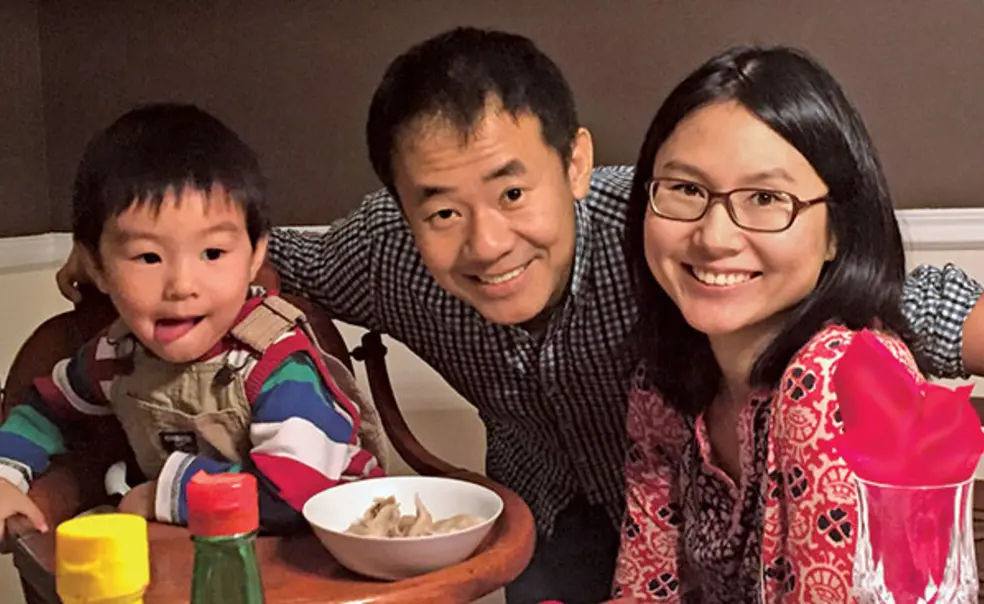Imprisoned in Iran
Grad student convicted of espionage after archival research for Ph.D.
Xiyue Wang, a fourth-year graduate student in history who traveled to Iran in 2016 for research for his dissertation, has been sentenced to 10 years in prison after his conviction on two counts of espionage.
Wang’s case became public when the verdict was announced in mid-July by the Iranian judiciary. In August his appeal was denied by Iranian authorities.
A University statement said Wang had been “unjustly imprisoned” and that he was in Iran solely to study Farsi and to examine archival documents from the late 19th and early 20th centuries. He outlined his research plans and the libraries and archives he planned to visit to Iranian authorities in advance, Princeton said.
The University said Iranian allegations that Wang was “sent” by Princeton to “infiltrate” Iran and that he had connections to intelligence agencies “are completely false.” Wang “was not involved in any political activities or social activism; he was simply a scholar trying to gain access to materials he needed for his dissertation,” the Princeton statement said.
Wang has been detained and confined to prison in Tehran since Aug. 7, 2016, the University said, but his case was kept confidential until July to avoid interfering with efforts to secure his release.
Wang, 36, is a naturalized U.S. citizen who was born in Beijing. His wife, Hua Qu, and their 4-year-old son are Chinese citizens. Qu released a statement saying she was “devastated” that Wang’s appeal had been denied and citing concern about his health. “It is heartbreaking to hear my son constantly ask about his father’s return home,” she said.
The University said it has been working “on a daily basis” to secure Wang’s release and to support him and his family, and said it had retained counsel for him in Iran. Wang has had several visits from his attorney and has been permitted to make short phone calls to his wife almost weekly, Princeton said. In addition, the Swiss embassy, which represents U.S. interests in Iran, has made consular visits to Wang in prison.
At the time Wang was taken into custody, he had effectively completed his work in Iran and was planning to return to Princeton briefly before traveling to Russia to continue his research, according to history professor Stephen Kotkin, Wang’s doctoral adviser.
Kotkin described Wang as a linguistically gifted graduate student who is studying governance practices of the late 19th century and early 20th century in predominantly Muslim regions of Qajar Iran, Afghanistan, and Russian Turkestan. This involved scanning hand-written documents and published materials relating to areas including courts and other institutions, taxes, local officialdom, and the movement of people and goods, Kotkin said. “These documents are 100 years old — there is no intelligence value in them,” he said.
He said Wang’s imprisonment was “almost inexplicable.” All of Wang’s actions followed standard procedures for researchers, and he was “only doing scholarly work — he had no ulterior agenda,” Kotkin said.
Princeton said Wang received $8,500 from the history department and almost $8,800 from the Mossavar-Rahmani Center for Iran and Persian Gulf Studies, an interdisciplinary center at Princeton, to support his travel, language classes, and research. The center is nonpolitical and supports independent teaching and research on the region, the University said.
After Wang was arrested, Princeton said, he “was required to deposit $12,000 with the Iranian Ministry of Justice.”
A petition urging Iran to release Wang has been signed by more than 1,400 scholars from 37 countries. The American Council on Education and 32 other higher-education and research associations joined in a statement calling for his safe release, saying that his imprisonment “can only have a chilling effect on historical research and scholarly exchange in Iran and throughout the world.”
For the record
This story was updated to correct Wang’s age.












3 Responses
Daniel Erdman ’73
6 Years AgoGood News!
Good news to hear that Xiyue Wang will be released from prison in Iran to return to his family in Princeton!
Josh Goldberg ’78
8 Years AgoResearch in Iran
Let's all hope for Wang's early and safe release! This said, I have to wonder about the wisdom of Princeton allowing him to travel to Iran for research. Has the University sent anyone to Pyongyang or Damascus?
Neal Koss ’62
8 Years AgoWorking to Free Wang
Published online Oct. 23, 2017
I am really sorry for Xiyue Wang and his family. The grad student is now in an Iranian prison for the trumped-up charge of espionage (On the Campus, Sept. 13). All he was trying to do was some research for his graduate thesis. I am sorry, but I truly don’t understand why he would even enter that country [Iran]. I understand that it was part of his research, but to go to a place where they hate us and they clearly don’t think like normal people was not a smart thing to do. This is similar to the story of the fellow who was “hiking” in that region and met the same fate. Other than Israel, no Middle Eastern country is safe; as we know, Israel has had its share of problems, but at least you know you won’t get arrested for espionage. I would hope that the State Department and the University can together free this man and that he can return safely to his family. Perhaps he might consider a different topic for his thesis.